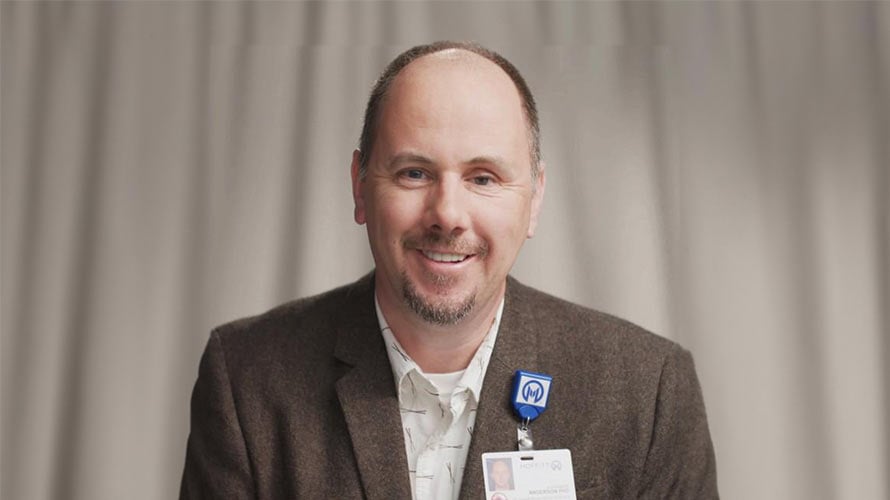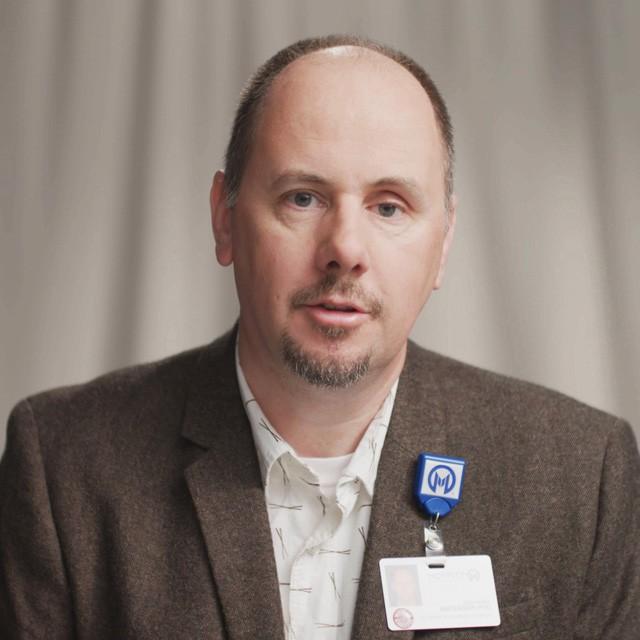Dr. Alexander Anderson's Story

Meet Alexander “Sandy” Anderson, PhD
Moffitt Researcher, Integrated Mathematical Oncology
"Cancer is a very complex problem but I think mathematics has the tools to understand it."
At a very young age, Dr. Alexander "Sandy" Anderson became interested in the use of mathematics to understand the world around him.
He initially studied mathematical biology, using formulas to understand biological systems. How will different animals interact? What drives some species to extinction?
Many answers could be found in the numbers, which never ceased to intrigue Dr. Anderson.
“If you’re a mathematician, being able to describe something that’s so apparently complex with simple equations, is a very beautiful thing,” says Dr. Anderson.
It was the complexity of cancer that drew him to the field of mathematical oncology.
Mathematics as a Tool to Treat Cancer
“Cancer is a very complex problem but I think mathematics has the tools to understand it,” says Dr. Anderson.
As chair of the Integrated Mathematical Oncology Department, Dr. Anderson leads a team of scientists who apply mathematics to understand how cancer develops and spreads, and consequently, devise better treatment options for patients.
“We’re very good at predicting the weather and predicting the path of hurricanes,” says Dr. Anderson. “I believe that in the future we’ll predict the path and the trajectory of a cancer and how it should respond to treatment.”
For Dr. Anderson, the future of cancer treatment looks something like this: before the treatment even begins, an oncologist will be able to show a patient the path of their treatment on a digital tablet. According to the patient’s predicted response, the treatment can be modified until the best therapy is determined. After the first round of treatment, the models are recalibrated and retested.
Every step of the way, the patient’s treatment is reevaluated to achieve a favorable outcome and better quality of life.
The driving force of this precise and personalized treatment? A mathematical model.
From there, of course, courage and caring figure heavily into the patient’s equation.
“The patients’ courage and their passion to survive really does motivate us,” says Dr. Anderson. “It’s the reason why we’re doing the science that we’re doing.”

